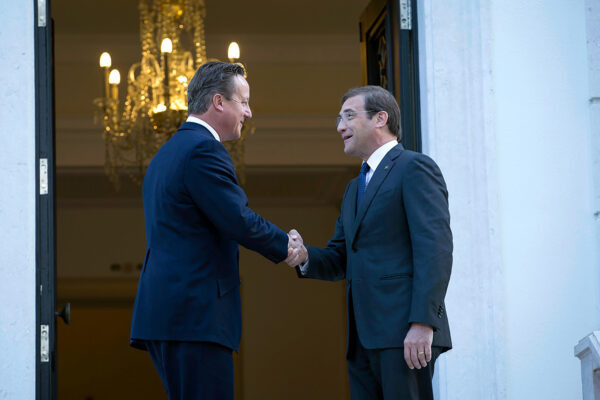
British prime minister David Cameron’s pitch for stability on Wednesday did not impress everyone.
The Guardian‘s Michael White, for one, found the Conservative Party leader’s annual conference speech wanting. The promise of more of the same “is pretty flimsy stuff,” he writes.
White believes that Cameron’s record pales in comparison to Margaret Thatcher’s, the Conservative prime minister who thoroughly liberalized Britain’s economy in the 1980s and decidedly shifted the center ground in British politics to the right. “The Tories’ current crop of leaders looks feeble by comparison.”
He may be underestimating Cameron’s radicalism.
Disruptive prime minister
Janan Ganesh recently argued in the Financial Times that the man who was going to be another Harold Macmillan — “the Tory grandee elegantly steering his country to no particular destination” — has turned out to be a disruptive prime minister. From decentralization in government and schools to an overhaul of welfare and wages, Cameron’s administration is transforming the British state and redefining the political center ground. The country may yet look back on his tenure as no less consequential than Thatcher’s.
“If we struggle to see that,” writes Ganesh, “his English aversion to ideology and its articulation is the reason.”
Better than the alternative
But even if White were right and Cameron was a technocrat devoid of purpose and principles, British voters might still prefer him over the alternative.
The Economist‘s Bagehot columnist, Jeremy Cliffe, drawing on Peter Mair’s Ruling the Void: The Hollowing of Western Democracy (2013), argues this week that the fragmentation of British society, away from classes and fixed social groups, means most voters would rather have a bland but capable leader than an exciting if risky partisan in charge.
When large numbers identify as a mass, they can be rallied around a shared interest (the industrial proletariat around a program of redistribution, for example). But when people live individualistic and esoteric lives, as most do today, political partisans can win only by vaunting their nonpartisan credentials; that is, their skill as technocrats and administrators.
Cameron isn’t the only one who has taken this lesson. Just this weekend, the liberal Pedro Passos Coelho won an election in Portugal on much the same proposition. Angela Merkel nearly won an overall majority for her conservatives in 2013 — which would have been the first time in Germany’s postwar history that any party managed to do so — by promising “no experiments.”
Britain’s opposition Labour Party, by contrast, has taken a leave of absence from electability by appointing the “straight-talking” and radical Jeremy Corbyn as its leader: a man whose mission is to overturn not just Cameron’s policies but Thatcher’s.
In doing so, Labour has quit the ranks of the Camerons, Merkels and Passos Coelhos of the world and joined the Nigel Farages, Beppe Grillos and Donald Trumps, according to Cliffe.
Those in the second group certainly aren’t “feeble.” But they must also be kept as far away from the levers of power as possible.
Given the choice between competence and an adventure, voters in grownup nations will almost certainly opt for the former — as they probably should.
